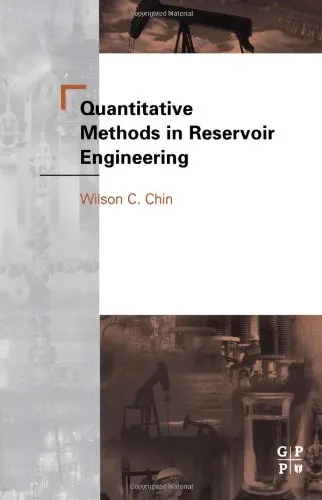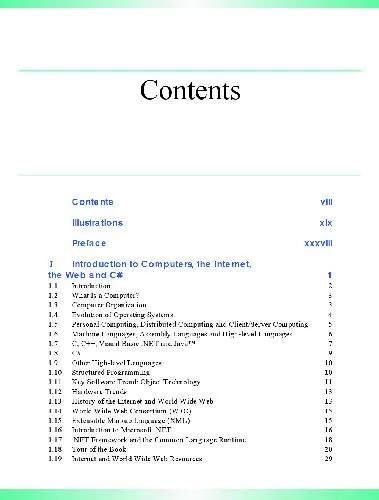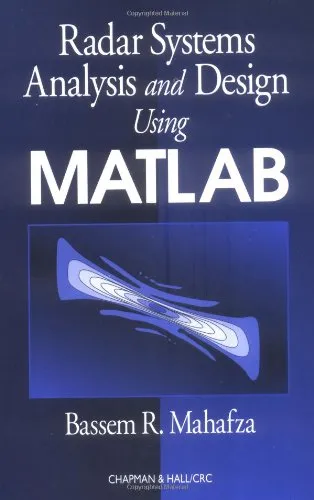Quantitative Methods in Reservoir Engineering
4.5
بر اساس نظر کاربران

شما میتونید سوالاتتون در باره کتاب رو از هوش مصنوعیش بعد از ورود بپرسید
هر دانلود یا پرسش از هوش مصنوعی 2 امتیاز لازم دارد، برای بدست آوردن امتیاز رایگان، به صفحه ی راهنمای امتیازات سر بزنید و یک سری کار ارزشمند انجام بدینکتاب های مرتبط:
معرفی جامع کتاب 'Quantitative Methods in Reservoir Engineering'
کتاب 'Quantitative Methods in Reservoir Engineering' یکی از منابع مهم و کاربردی در حوزه مهندسی مخازن نفت و گاز است که به معرفی روشهای کمی در تحلیل و مدیریت مخازن میپردازد.
خلاصهای از کتاب
این کتاب به عنوان یک راهنمای جامع در زمینه مهندسی مخازن، تکنیکها و ابزارهای مختلفی را معرفی میکند که برای تحلیل دادهها و بهینهسازی عملکرد مخازن ضروری هستند. در این کتاب، روشهای عددی و تحلیلی متنوعی برای پیشبینی رفتار مخازن و بهبود روشهای بازیافت منابع طبیعی ارائه میشود. از مدلهای ریاضی تا شبیهسازیهای پیچیده جریانهای چندفازی، نویسنده به تشریح کاربردهای عملی این تکنیکها میپردازد.
نکات کلیدی
- آشنایی با اصول پایهای Reservoir Engineering و مفاهیم مربوط به آن.
- استفاده از روشهای کمی برای بهبود بهرهبرداری و مدیریت مخازن.
- ارائه تکنیکهای نوین در شبیهسازی و مدلسازی رفتار مخازن.
- ارتقاء فهم مفاهیم کلیدی مانند porosity، permeability، و fluid dynamics.
جملات معروف کتاب
تکنیکهای عددی وسیلهای قدرتمند برای مهندسی مخازن هستند، زیرا به ما امکان میدهند تا به طور مستقیم پیشبینیهای روشن و دقیقی داشته باشیم.
چرا این کتاب مهم است؟
در دنیای امروز، با افزایش نیاز به منابع انرژی و چالشهای مربوط به استحصال بهینه آنها، اهمیت درک و استفاده از روشهای پیشرفته برای مهندسین مخزن چشمگیرتر شده است. این کتاب نه تنها به عنوان یک مرجع تحصیلی، بلکه به عنوان یک راهنمای کاربردی برای حرفهایها در حوزه نفت و گاز عمل میکند. با تمرکز بر معرفی و کاربرد روشهای کمی، کتاب به چالشهای روزافزون در زمینه مهندسی مخازن پاسخ میدهد و به ارتقای دانش فنی و علمی در این حوزه کمک میکند.
Introduction
Welcome to "Quantitative Methods in Reservoir Engineering", a comprehensive guide that delves deep into the mathematical and analytical techniques essential for understanding and optimizing reservoir performance. This book serves as a cornerstone for professionals and students alike, offering rigorous exploration of methods that are fundamental to modern reservoir engineering.
Detailed Summary of the Book
"Quantitative Methods in Reservoir Engineering" meticulously outlines the quantitative tools and techniques pertinent to analyzing and enhancing the efficiency of reservoir exploitation. From the foundational concepts of fluid flow through porous media to the advanced applications of simulation models, each chapter builds upon theoretical and practical knowledge.
The book covers a wide array of topics, including but not limited to, the principles of material balance, well testing, decline curve analysis, and the nuances of enhanced oil recovery methods. Each topic is presented with a balance of theoretical insights and real-world application, ensuring that readers not only understand the underlying mathematics but also appreciate the practical implications of these methods.
Key Takeaways
- Understanding and applying mathematical models to increase reservoir performance and recovery rates.
- The ability to apply quantitative methods in the appraisal and management of oil and gas reservoirs.
- Insight into the latest technological advancements and their integration with traditional reservoir engineering practices.
- Comprehensive knowledge of fluid dynamics and thermodynamics as applied in reservoir contexts.
- In-depth analysis and development of simulation models to predict reservoir behavior under various production strategies.
Famous Quotes from the Book
"To comprehend the dynamics of a reservoir is to hold the key to unlocking its full potential."
"Quantitative methods are not just tools but the languages through which reservoirs speak to us."
Why This Book Matters
In the rapidly evolving landscape of reservoir engineering, staying abreast of the latest quantitative methods is paramount. This book stands out as a critical resource, offering a deep dive into the numerical techniques that empower engineers to make informed decisions. By blending established practices with cutting-edge advancements, it equips readers with the skills to tackle contemporary challenges in the energy sector.
Furthermore, the book acts as a bridge for students transitioning into professional roles, providing the foundation necessary to master the quantitative aspects of reservoir engineering. Its significance is further amplified by its practical approach, which underscores the importance of integrating theory with practice to drive innovation and efficiency in reservoir management.
دانلود رایگان مستقیم
شما میتونید سوالاتتون در باره کتاب رو از هوش مصنوعیش بعد از ورود بپرسید
دسترسی به کتابها از طریق پلتفرمهای قانونی و کتابخانههای عمومی نه تنها از حقوق نویسندگان و ناشران حمایت میکند، بلکه به پایداری فرهنگ کتابخوانی نیز کمک میرساند. پیش از دانلود، لحظهای به بررسی این گزینهها فکر کنید.
این کتاب رو در پلتفرم های دیگه ببینید
WorldCat به شما کمک میکنه تا کتاب ها رو در کتابخانه های سراسر دنیا پیدا کنید
امتیازها، نظرات تخصصی و صحبت ها درباره کتاب را در Goodreads ببینید
کتابهای کمیاب یا دست دوم را در AbeBooks پیدا کنید و بخرید
1458
بازدید4.5
امتیاز0
نظر98%
رضایتنظرات:
4.5
بر اساس 0 نظر کاربران
Questions & Answers
Ask questions about this book or help others by answering
No questions yet. Be the first to ask!














